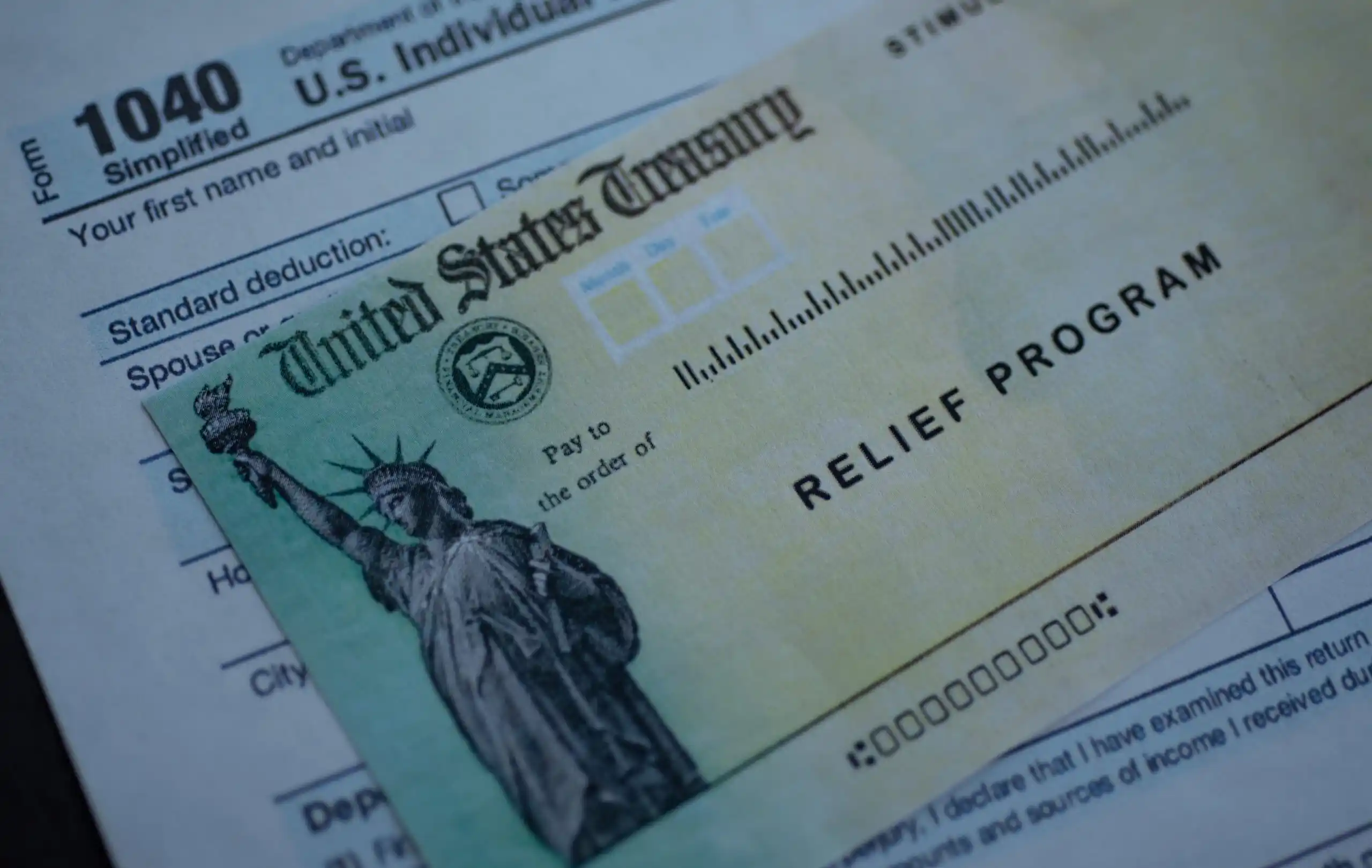It’s that time of year again. The airwaves are once again full of commercials for tax relief services. They offer a promise to settle your back taxes — sometimes for just pennies on the dollar. I can still hear some of those catchy jingles in the back of my head. Maybe you can too. But are these services really legitimate? Or are they just blowing hot air? Cynics claim that they prey on people who are already struggling financially or those who don’t really understand their tax returns. So before you go running to a tax relief agency and asking for help, here’s what you need to know.
You Could Do Tax Relief Yourself — For Free
Let’s start with a very simple truth. Any work that a tax relief service is offering is something that you can absolutely do yourself. And doing it yourself will obviously not cost you a dime. You don’t actually need to use a third party to negotiate with the IRS. Owing taxes to the government is really no different than owing money to any other creditor. If you are having trouble making your tax payments, your best course of action is to contact them directly. They will usually be willing to negotiate a plan for paying your back taxes.
The IRS even has an independent organization — the Taxpayer Advocate Service — that works within the agency to offer free help to taxpayers who need it. You can also reach a taxpayer advocate from the IRS at 1-877-777-4778. Alternatively, you can fill out Form 911, Request for Taxpayer Advocate Service Assistance, and then fax or mail it. The address to send the document to is different for every state.
Another options for taxpayers in debt to the IRS is the Fresh Start Program. It was designed to make paying back taxes and avoiding tax liens easier. There are three features the program offers taxpayers.
- Tax Liens: The amount taxpayers can owe before the IRS files a Notice of Federal Tax Lien is now $10,000.
- Installment Agreements: Individual taxpayers who owe up to $50,000 can pay it back through monthly debit payments for up to 72 months.
- Offers in Compromise: This allows taxpayers to settle their tax debt for less than the full amount.
The IRS will generally accept an offer in compromise if they can expect to collect the payment within a reasonable amount of time. Though some people may not qualify for this if it’s believed they can pay the entire amount in a lump some or payment agreement. To learn more about how to qualify for the Fresh Start Program, start an online search and visit the IRS website.
Alternatives to Tax Relief Services
If you really feel that you need outside help, there are other options too. Consider consulting with (or hiring) a tax attorney, a Certified Public Accountant (CPA), or an Enrolled Agent — a tax professional who is federally authorized to represent taxpayers before the IRS. These are the individuals who have the authority to represent you to the IRS.
I personally prefer with a CPA. They can look at your past tax returns and might find errors. They have the authority to correct those errors by filing amendments. That way, you might be able to lower your tax liability in addition to negotiating a tax relief. In some rare cases, you may even find that the penalties assessed can be wiped out entirely, if the taxes owed was due to a filing error. This might sound like a pipe dream. However, it happens more often than you’d think.
Those “Penny on the Dollar” Promises Are Rare
When tax relief services promise you “pennies on the dollar” settlements on back taxes, they are referring to real IRS hardship programs. The truth, though, is that not everyone will qualify for these programs. The IRS offers three different tax relief programs to select individuals who owe back taxes.
Installment Agreement
The Installment Agreement program allows those who cannot pay their tax debt in a single payment to make smaller monthly payments instead, until it’s paid off. This is essentially like getting a loan from the IRS. There’s a set interest rate and everything. Whatever amount isn’t paid is going to accrue interest until the whole thing is paid off. For longer loans (over six months), there’s typically a small setup fee too. It can be as much as $225 if you apply by phone, mail, or in-person. Luckily, the setup fee is reduced for low-income individuals to $43. Additionally, you can also apply online for $149 — no matter what your income is.
Offer in Compromise
The Offer In Compromise (OIC) allows taxpayers to settle their tax debt for less than what they owe, but under specific circumstances. These circumstances can be one of the following cases.
- If the IRS doesn’t think they can collect the full amount.
- A reasonable argument is made as to why the taxpayer shouldn’t be liable for the tax penalty assessed under current tax law.
- The taxpayer can afford to pay the bill in full but doing so would create economic hardship or be unfair and inequitable because of exceptional circumstances. This is granted on a case-by-case scenario. And as you can imagine, this will only be granted in very extreme cases.
This program is only used when the taxpayer has exhausted all other possible payment options and the IRS has reviewed the taxpayer’s financial situation.
Penalty Abatement
The IRS will also sometimes offer a penalty abatement in circumstances where the taxes went unpaid due to reasonable cause. This could be because you were affected by a natural disaster or were suffering from a serious illness. An interest abatement is a similar program that is used even less frequently. In both cases, the taxpayer would need to prove the reasons why the original tax payment wasn’t paid on time. You would also still be expected to be able to pay the full amount of the original taxes owed — just not the interest or penalties.
Only the IRS can determine if you qualify for any of these programs. Any tax relief service that makes promises about your qualification should not be trusted. All the tax relief service can really do is apply for these IRS programs on your behalf. Once again, that is something you can do all by yourself, with a little research and effort.
You Could Pay Up Front and Never Get Tax Relief
The unfortunate truth about some tax relief services is that they just cost you more money. It’s possible to pay an upfront fee and then have the IRS reject you applications for relief. It’s not technically illegal, since they provided the service you paid for — that is, speaking to the IRS on your behalf. However, when you’re already struggling to pay your taxes, another bill is just rubbing salt in the wound.
Not all tax relief services are fraudulent. However, several companies have gotten in hot water with the Federal Trade Commission and the Better Business Bureau. Among the complaints levied against these companies include not filing any paperwork with the IRS and refusing to offer a refund.
Even a legitimate service is only going to be able to help you within the bounds of what the IRS allows. Remember that no matter how big and tempting the advertised promise is, you still must abide by IRS regulations.
The Bottom Line
Tax relief services are not usually the easy solution to back taxes that they advertise themselves to be. While those examples of how they’ve saved customers thousands of dollars may be true, those customers could have negotiated the same deal on their own. The only time these services are really useful is when you are too busy to deal with the situation yourself. Or if you are completely overwhelmed by the confusing and complicated web of tax laws and various forms. This is often a problem for those who don’t speak English as their first language. Even then, it may be better to hire a tax attorney, CPA, or Enrolled Agent to help you solve your tax dilemma.
In any case where you hire a third party, though, expect the process to take a bit longer to resolve. That’s due to needing additional communications with an additional party. Plus you are going to be paying for their time. In the end, you are almost always better off contacting the IRS yourself. With a little bit of internet research and the right information, you can negotiate with the IRS on your own behalf — and save yourself some money.
 Shutterstock
Shutterstock







